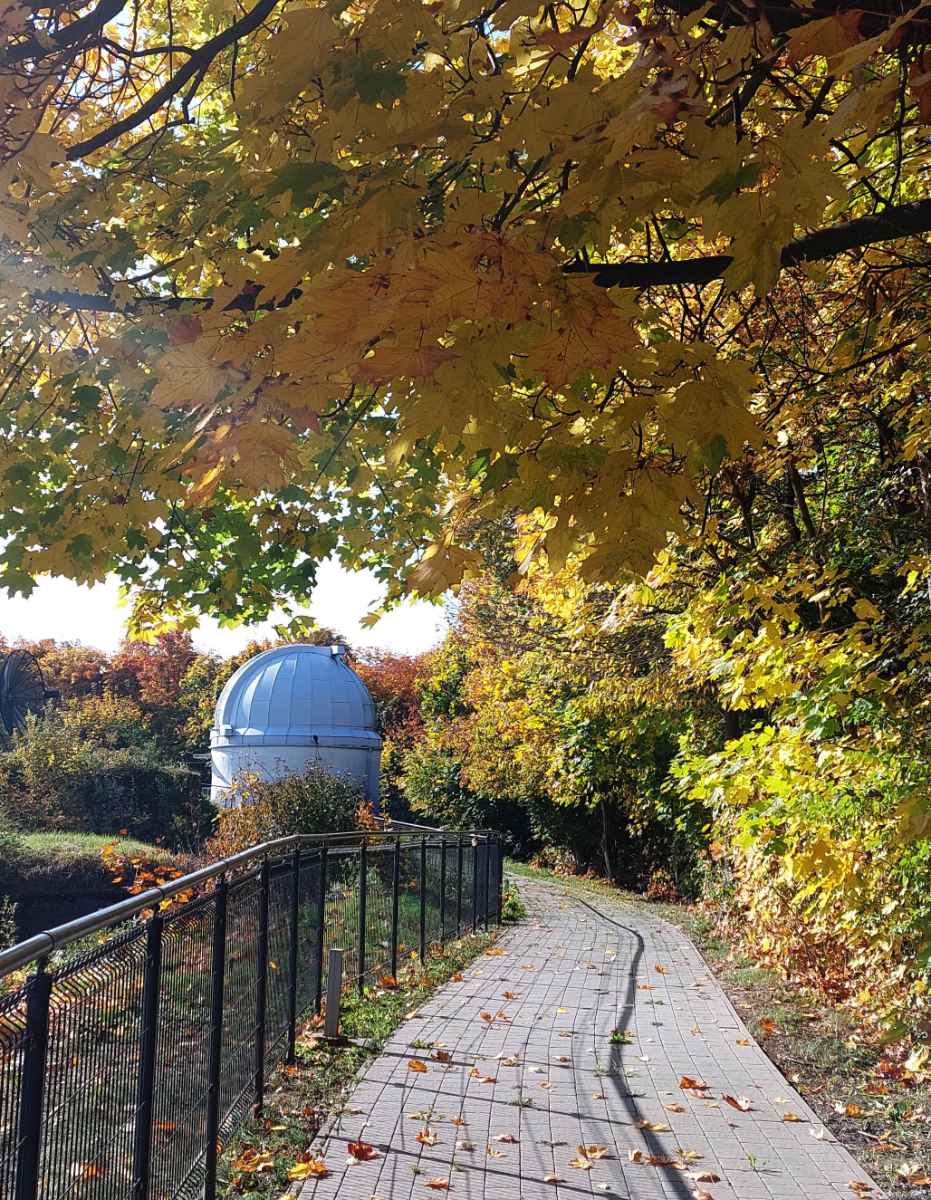Admission to the Astronomy education programme
in the Doctoral School of Exact and Natural Sciences
education in the JU Astronomical Observatory
language of education: English

The education programme covers many areas of modern astrophysics:
- photometric and spectroscopic studies of optically variable objects
- radio astronomy of galaxies and radio galaxies
- numerical magnetohydrodynamics and numerical kinetic modelling of plasma
- applications of computer algebra techniques to astrophysics
- theoretical and observational high-energy astrophysics (X and gamma rays, cosmic rays)
- theoretical relativistic astrophysics and cosmology
- study of extremely low-frequency waves on Earth
The Astronomical Observatory of Jagiellonian University actively engages in diverse projects and collaborations within the field of astronomy. We contribute to research in ESO, have access to the SALT optical telescope and collaborate on high-energy astrophysics projects such as HESS and CTA (gamma-ray astrophysics). We are also a part of the network of LOFAR radio telescopes array. Furthermore, our researchers conduct observations and utilize data from a range of world-class instruments, including the VLA network, the 100m Effelsberg radio telescope, and space-based X-ray observatories such as Chandra, XMM, and Fermi. Additionally, we make use of data from space-bound optical telescopes like TESS, GAIA and participate in the VIRGO gravitational waves detector project. This comprehensive approach enables us to contribute to and benefit from a diverse range of astronomical research initiatives.
See also:
The Astronomical Observatory of the Jagiellonian University website.
Explore the buildings anf instruments of the Observatory in a virtual tour.
A subpage dedicated to this education programme.

